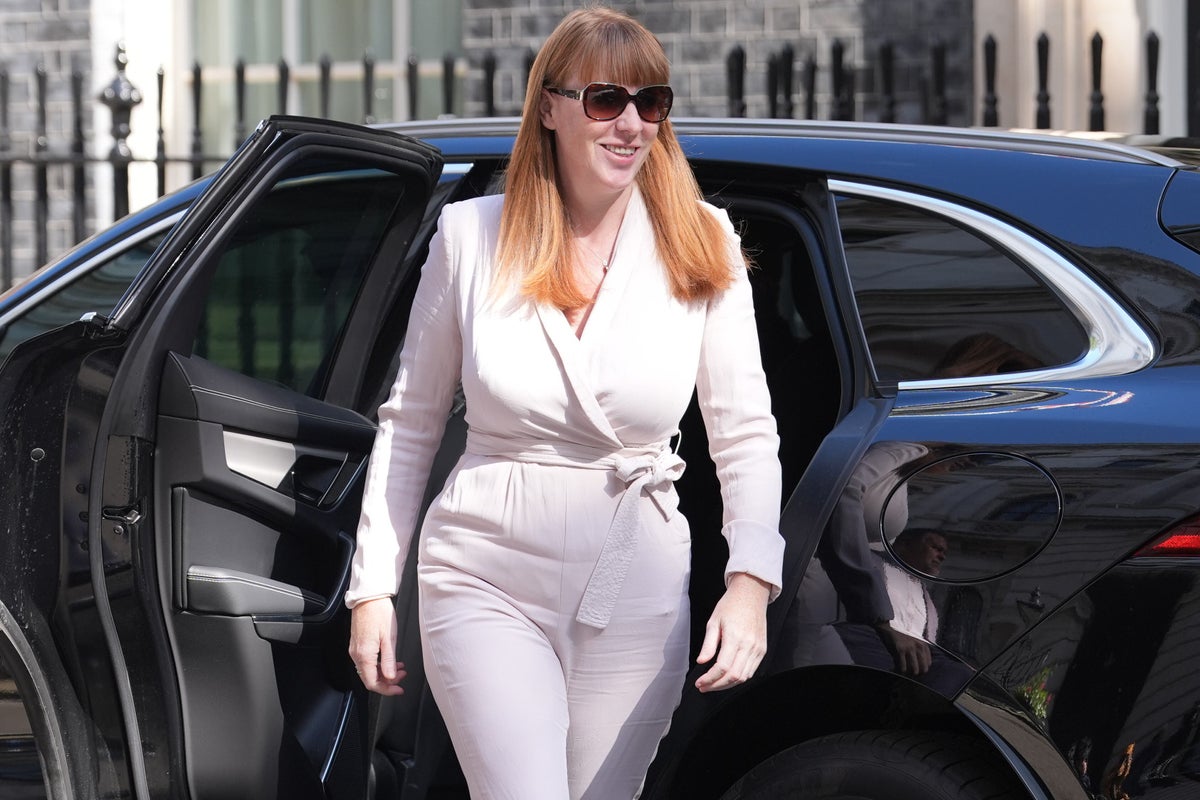
Angela Rayner once described herself as “John Prescott in a skirt” and, like the former deputy prime minister before her, she is to many Labour supporters the authentic voice of the party’s traditional values.
Like her predecessor, she worked her way up the hard way, leaving school at 16 and cutting her teeth as a trade union official before embarking on a career in parliament.
Openly ambitious, her popularity with the party’s grassroots had seen her increasingly touted as a replacement for Sir Keir Starmer as Labour has struggled during its first year in office.
Whether such ambitions can survive the latest controversy over the payment of stamp duty on her seaside flat remains to be seen – but she is unlikely to give up without a fight.
Ms Rayner grew up in the squalor of a rundown council estate in Stockport, her mother had bipolar disorder and was prone to self-harm, and her father was nearly always out of work.
She would go once a week with her two younger siblings to bathe at her grandmother’s flat because the family could not afford to pay for hot water.
When she left school, having become pregnant, she was told she would never amount to anything.
After studying part-time for a vocational qualification, she took a job as a care worker for the local council, where she was put forward as a union representative.
“I was mouthy and I would take no messing from management,” she later recalled.
It was a move that set her on the path to a political career, rising through the ranks to became a full-time union convener, before standing successfully for the safe Labour seat of Ashton-under-Lyne in the 2015 general election.
At Westminster she identified with the “soft left” and was among the minority of Labour MPs to stand by Jeremy Corbyn in the chaotic aftermath of the Brexit referendum, when he faced a concerted push to oust him.
Nevertheless, when she stood successfully for deputy leadership after Labour’s crushing defeat in the 2019 general election, she said she was “not a Corbynite”.
Despite her distancing from the left, her relationship with Sir Keir has not always been an easy one.
It reached its nadir after the 2021 local council elections, when he removed her as party chairwoman only to hand her a series of new roles and the title of shadow first secretary of state, effectively shadow deputy prime minister, when she fought back.
As the party’s fortunes picked up, so relations between them began to improve, her brash outspokenness a useful antidote to her more buttoned-up leader – “I overshare … but I’ve always said Keir undershares”, she joked.
That outspokenness landed her in hot water when she described the Conservative government of Boris Johnson as a “vile, nasty Etonian … piece of scum”.
She initially defended her comments, only to issue an unreserved apology in the wake of the murder of the Tory MP Sir David Amess, which prompted her to reflect on the abuse that “all too often” characterised political debate.
She herself was the target of newspaper claims that she would cross and uncross her legs to distract Mr Johnson when she stood in for Sir Keir at Prime Minister’s Questions – a report which she dismissed as a “perverted smear”.
In a foreshadowing of her present difficulties, disclosures about the sale of a council house in 2015 led to a police investigation after the Tories complained she may have broken electoral law and dodged capital gains tax.
After Greater Manchester Police announced, just days into last year’s general election campaign, that they would be taking no further action, she said it had all been an attempt by the Conservatives to “clip my wings”.
